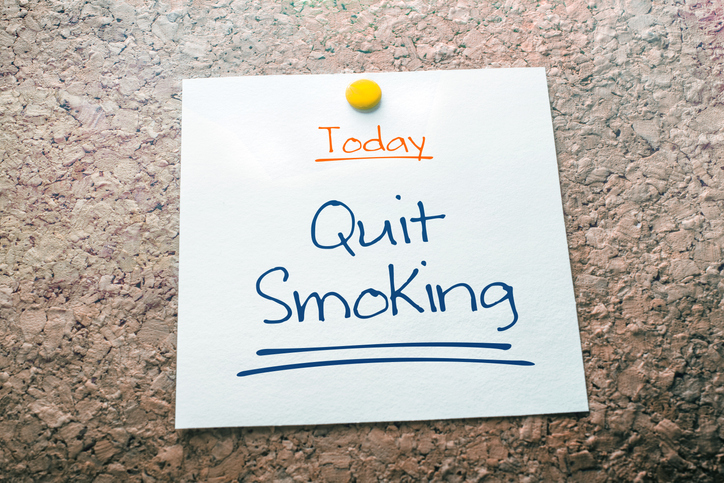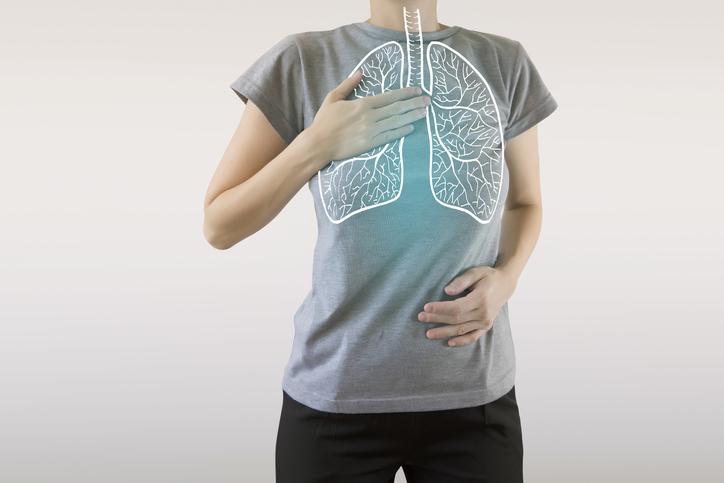Need Another Reason to Quit Smoking? Coronavirus Just Gave You One!

Actress Patricia Arquette, who is 51-years-old, recently announced that she has decided to quit smoking due to the coronavirus outbreak. She is strongly encouraging her fans to do the same.
"As COVID-19 attacks the lungs one of the most important things you can do is to quit smoking and vaping," she wrote on Twitter, according to this report.
"I’m in day 3. Care to join?"
At this point in the global coronavirus (also known as COVID-19) pandemic, it’s widely known that older adults and those with chronic health issues, such as diabetes and cardiovascular disease, are at a much higher risk of developing serious complications with this virus than those who are younger and healthier.
But there is another group which is disproportionately affected. Alarmingly, statistical analysis of the pandemic are now clearly showing that smokers and vapers also run a higher risk of developing serious illness and even dying from the coronavirus. (Exposure to second and third-hand smoke may also increase an infected person’s risk).

To give you an example, a 38-year-old (which is young) man in Israel who was exposed to the virus got more sick than a person his age usually would.
“According to reports, the severity of his condition — unusual for a man of his age — was linked by doctors to the fact that he is a smoker,” this report states.
Among smokers and vapers, it appears that it is easier for the coronavirus to wreak havoc on the lungs and other organ systems.
“There is substantial scientific literature showing that smoking inflames the lungs and suppresses immune function,” reports Scientific American.
Scientific American interviewed Melodi Pirzada, who is chief of pediatric pulmonology at NYU Winthrop Hospital of Long Island.
“For regular smoking, we know it inhibits the ciliary clearance of the airways,” she said.
“We have these little [hairlike] structures known as cilia, and they are responsible for taking the toxins and the mucus out of our airways and clearing the lungs when we cough. We know that that is affected when you smoke and when you vape.”
There is evidence of the devastating effects of coronavirus in smokers from preliminary morbidity and mortality data from China (where the initial outbreak occurred).
The analysis showed that among Chinese patients diagnosed with COVID-19-related pneumonia, the odds of disease progression (including death) were 14 times higher among people with a history of smoking compared to those who did not smoke. When researchers looked at other factors, they found that smoking was the strongest risk factor among the cases examined.
Since this particular coronavirus attacks your lungs, anything you can do to protect their healthy functioning is critical to reducing your risk of developing severe respiratory problems should you be infected with this or other viruses that target your respiratory system. Keeping your lungs healthy also helps keep your other organ systems healthy since your lungs are responsible for making sure your body gets the oxygen its needs. To put your need for oxygen in perspective, you can live for weeks without food, days without water but only a few minutes without oxygen.
One of the biggest threats to the healthy functioning of your lungs, and one that you can control, is smoking. In addition to being the leading cause of lung cancer, smoking damages your lungs and makes it harder for them to respond effectively to infection in general. This makes them far more susceptible to coronavirus complications, including pneumonia and acute respiratory distress syndrome (ARDS). Moreover, having any cotinine (a byproduct of nicotine as your body breaks it down) – even at the low levels you would have from breathing second-hand smoke – can increase your risk of ARDS.
Smoking and Other Coronavirus Complication Risks
In addition to damaging your lungs, smoking also increases your risk for developing or having chronic diseases which have been shown to increase the severity and mortality of COVID-19. Besides lung cancer, smoking may cause cardiovascular disease, including hypertension as well as diabetes. If having one of these chronic diseases increases your risk of complications from coronavirus, having two or more of them increases this risk even further. And the strongest risk factor for cardiovascular disease is smoking.
Your body’s other critical line of defense against the coronavirus and other pathogens is your immune system. If your immune system is weakened for any reason, your ability to fight off viruses and harmful bacteria decreases and it becomes easier for you to get sick. As you probably have already guessed, smoking damages your immune system, which may make it easier for the coronavirus to take hold and flourish in your body. Smoking also affects the immune system’s “balance,” meaning that it may unintendedly go into overdrive, increasing your risk for immune and autoimmune disorders such as rheumatoid arthritis. This impact on the immune system could also help account for the increased mortality of coronavirus among smokers.
It's Never Too Late To Quit Smoking!
The good news is that quitting smoking could immediately make a positive difference in your health. For example, in less than 30 minutes after your last cigarette, your heart rate lowers, blood circulation improves and blood pressure begins to drop. When it comes to your lungs, they do have the capacity to heal relatively quickly, which usually results in lower rates of lung infections.
If you, or a loved one, have been thinking of quitting smoking or vaping, there is a wealth of information as well as countless support groups available to help you break the smoking or vaping addiction once-and-for-all!
A good place to start is right here where we have an ongoing series of blogs about how to quit. You can also get in touch with the American Cancer Society to learn more about local support programs.
It’s also important to remember to make sure your body is getting all the nutrients it needs to help keep your lungs healthy and your immune system in tip-top-shape. The best place to start is by getting a nutrient test to help you and your healthcare provider know which nutrients, and in which amounts, your body may need.
Enjoy your healthy life!
The pH professional health care team includes recognized experts from a variety of health care and related disciplines, including physicians, attorneys, nutritionists, nurses and certified fitness instructors. This team also includes the members of the pH Medical Advisory Board, which constantly monitors all pH programs, products and services. To learn more about the pH Medical Advisory Board, click here.







